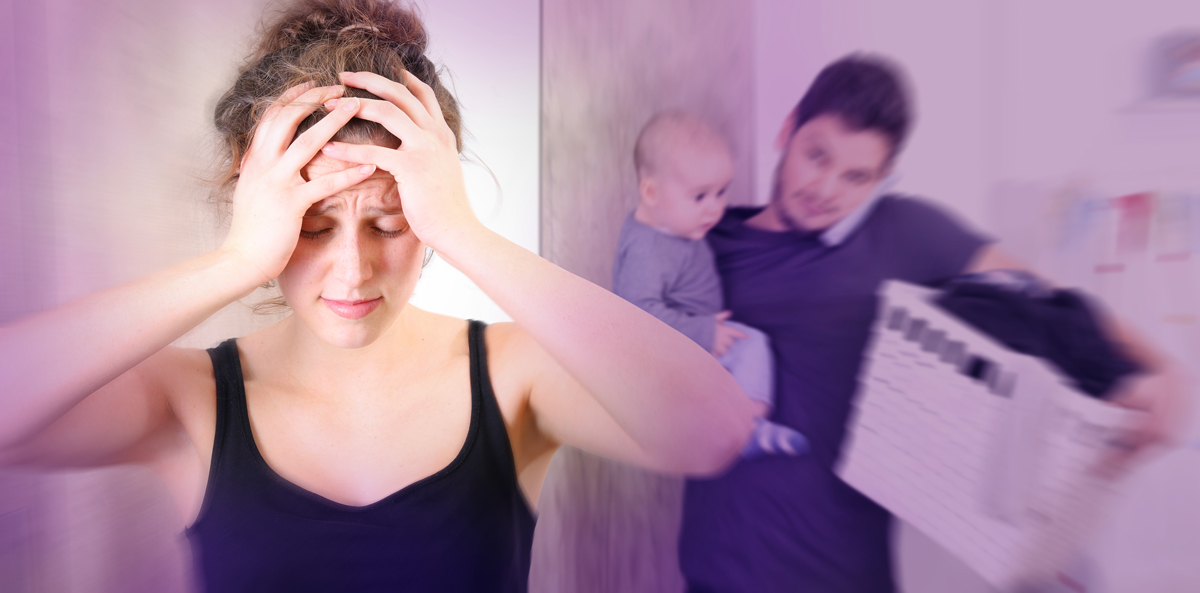This week the Huffington Post came out with a very important article entitled, “Inside The ‘Hidden Disorder’ New Moms Are Afraid To Talk About” by Catherine Pearson.
This article discusses Postpartum Anxiety (PPA), an under-recognized disorder that occurs in as many as 10—17% of new moms. While Postpartum Depression (PPD) has received media attention through new awareness methods, screening tools, and celebrity tell-alls (thank you, Brooke Shields!), PPA often gets overlooked in clinical settings and women suffer alone and without a name for their condition.
What is postpartum anxiety and how does it differ from regular anxiety?
The birth of a child is a life transition that doesn’t come with a manual. However, our society gives us clues about parenting through family modeling, peer modeling, books, media, and trial-and-error. With any new experience, there is always a level of anxiety and a degree of uncertainty about what to expect as well as how we are performing in our new role. This is evidenced in research from the Mayo Clinic, which found that 89 percent of new parents experience distressing and intrusive thoughts related to their infants’ well-being. These thoughts include images of the baby suffocating or being contaminated with germs, worry about the baby having an accident, and/or fears about the baby being harmed or kidnapped (Colino, 2006).
Although most new parents experience anxious thoughts, PPA is a condition that causes women to feel a constant, paralyzing sense of worry that decreases their quality of life and affects their ability to manage the demands of parenthood. What differentiates PPA from “regular” new parent anxiety is that people who develop PPA often feel distressed that they can’t “control” their thoughts, they over-engage in behaviors to alleviate the distress caused by their thoughts, and they interpret their thoughts as meaningful and/or indicative of what will happen in the future. People with PPA also report feeling pressured to be doing something at all times (i.e., cleaning bottles, cleaning baby clothes, entertaining the baby, checking on the baby), have nonstop worries that aren’t alleviated with counter-evidence or reassurance, have strong fears of accidently hurting their babies, have physical symptoms (changes in sleep and eating), and experience an unrelenting sense of dread.
Who is vulnerable to postpartum anxiety?
While any new mom can develop PPA, women with a history of depression, anxiety disorders, eating disorders, or who experience weepiness and agitation during PMS are more vulnerable to the condition (Colino, 2013). My clinical observation also found that women who define themselves as “worriers” prior to pregnancy, and who engage in reassurance seeking behaviors throughout their lives to deal with their anxiety, often report an symptoms of PPA more often than the general public. Additional risk factors for PPA include PPD, and having a previous miscarriage or stillbirth (Colino, 2013).
Why is it important to get help?
Firstly, you are suffering, and PPA is treatable. Secondly, this condition also impacts your quality of life insofar as it affects your ability to bond with your baby, leads to obsessive worrying which disrupts your sleep, affects your relationships, and impairs concentration, and PPA prevents you from experiencing the joys of parenthood.
Let’s stop the stigma and start the treatment.
To read the Huffington Post Article, click here: http://www.huffingtonpost.com/entry/inside-the-hidden-disorder-new-moms-are-afraid-to-talk-about_us_59510c79e4b0da2c731ce7bb
For information on Postpartum Depression, visit: https://www.momlovesbest.com/postpartum-depression. This is a fantastic website that provides education about risk factors, symptoms, and treatment for Postpartum Depression.
References
Colino, Stacey. (2006, March). Scary thoughts. Retrieved from http://www.washingtonpost.com/wpdyn/content/article/2006/03/06/AR2006030601145.html
Colino, Stacey (2013, November). The Other Postpartum Problem: Anxiety. Retrieved from: http://www.parents.com/parenting/moms/healthy-mom/the-other-postpartum-problem-anxiety/




2 Comments
I never knew there was a name for what I was experiencing. Thank you for writing about this!
I’m so glad you found this to be helpful! Feel free to contact me directly for more information. I’m happy to send you additional resources.
Add Comment